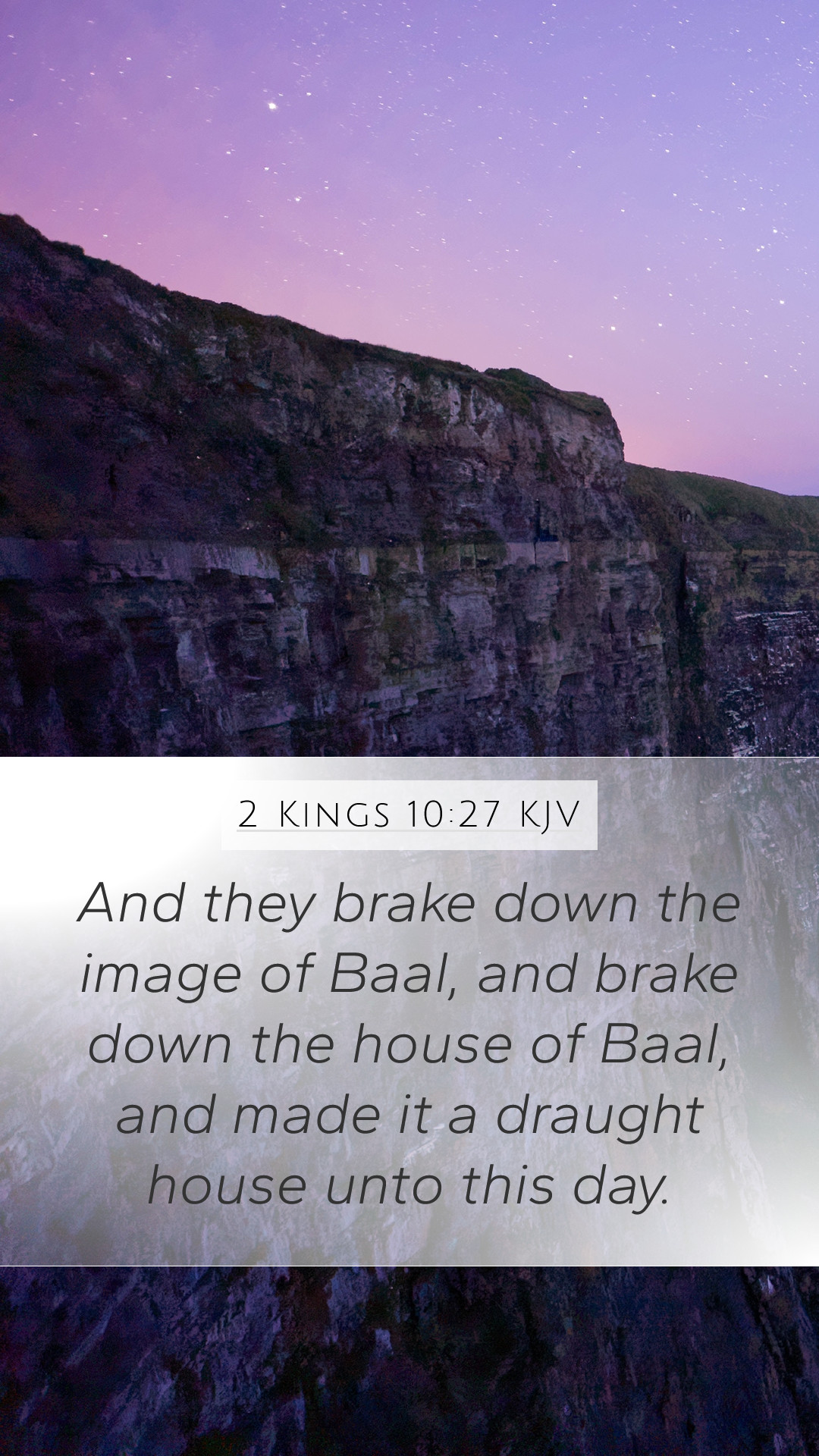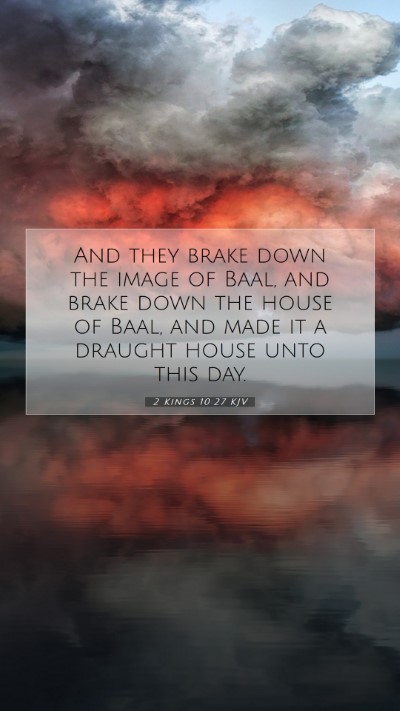Understanding 2 Kings 10:27
Bible Verse: 2 Kings 10:27 states, "And they broke down the pillar of Baal, and tore down the house of Baal, and made it a latrine to this day." This verse encapsulates a significant moment in the biblical narrative concerning the eradication of idolatry in Israel.
Bible Verse Meanings
The meaning of this Bible verse revolves around the destruction of Baal worship, which had permeated Israel under the influence of Ahab and Jezebel. This action not only symbolizes the rejection of false gods but also marks a pivotal shift in the religious landscape of Israel. Significant insights can be drawn from historical and contextual analysis from renowned biblical commentaries.
Bible Verse Interpretations
Commentators such as Matthew Henry emphasize the divine judgment expressed in the images that were associated with Baal worship. Henry notes, "The fall of Baal represents the victory of true worship over idolatry." This interpretation suggests a profound commentary on the need for spiritual renewal and the rejection of worldly idols.
Bible Verse Commentary
- Albert Barnes elaborates that the destruction of Baal's temple serves as a stark reminder of God's sovereignty over all nations and religions.
- Adam Clarke connects the act of turning the house into a latrine to a form of divine mockery against Baal, showcasing that what was once revered is now deemed worthless and defiled.
Historical Context
To fully grasp the implications of 2 Kings 10:27, understanding the historical context is essential. The worship of Baal was prevalent in ancient Israel, introduced by Ahab's marriage to Jezebel. The prophetic mission of Elijah and now Jehu’s actions are pivotal in restoring the worship of Yahweh. This action reflects the culmination of the struggle against idolatry that defined much of Israel’s history.
Theological Implications
Theologically, this verse underscores the consequences of idolatry and God’s unwavering stance against it. The act of transforming Baal's temple into a latrine signifies the complete rejection and annihilation of idol worship, reflecting an important theme in biblical exegesis—God's desire for His people to remain faithful to Him.
Application of the Verse
When analyzing the application of 2 Kings 10:27 to daily life, it serves as a reminder for believers to examine the "idols" in their own lives. Just as Baal's worship was dismantled, Christians are called to dismantle anything that stands in opposition to their worship of God. This may include habits, influences, or relationships that distract from spiritual devotion.
Bible Study Insights
This verse provides profound insights for Bible study groups today, serving as a foundation for discussions about the importance of purity in worship and the rejection of secular influences. It prompts questions such as: "What modern idols exist in our lives?" and "How can we ensure our worship is directed toward God alone?"
Additional Cross References
- 1 Kings 18:20-40 - The account of Elijah confronting the prophets of Baal.
- 2 Kings 17:16-20 - The consequences of Israel's idolatry.
- Jeremiah 7:30-31 - The condemnation of idol worship in Judah.
Conclusion
The destruction of Baal's temple in 2 Kings 10:27 is more than a historical event; it is a powerful symbol of the absolute sovereignty of God over all forms of worship. As Christians engage in online Bible study or utilize Bible study tools, reflecting on such passages enhances understanding and encourages believers to align their lives more closely with God’s will.


